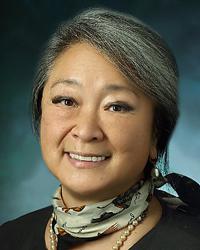Takeaway
When thinking about menopause, hot flashes are frequently the first thing that come to mind. But clinically excellent care requires recognizing the full spectrum of symptoms.

Lifelong learning in clinical excellence | September 3, 2024 | 1 min read
By Wen Shen, MD, Johns Hopkins Medicine
By 2030 it’s estimated half the female population in the United States will be in menopause. I often speak with female patients who feel depressed, may or may not have hot flashes/night sweats, sleep disturbance, and hasn’t had a restful night’s sleep in months, or even years. As a result, they experience mood changes, irritability, and may have more conflicts with loved ones. She thinks she may have dementia because of brain fog, forgetfulness, and trouble with work performance. She has genitourinary symptoms that that make her cringe at the thought of sex because it feels like sand/knives/paper cuts. And to top it off, there’s the embarrassment of incontinence. She’s overextended and may have children to raise, older relatives to care for, AND a stressful full-time job. All she wants is relief and to feel like herself again.
Here are a few things to keep in mind when caring for those experiencing menopause:
1. Stay up to date on quickly developing information and treatments.
2. Validate the patient’s experience.
3. Understand that menopause symptoms are real and can severely affect a woman’s daily functioning and quality of life.
4. If you’re not familiar with menopause medicine, up to date on all the evidence, or just uncomfortable prescribing menopause treatments, refer the patient to a specialist.
This piece expresses the views solely of the author. It does not necessarily represent the views of any organization, including Johns Hopkins Medicine.

